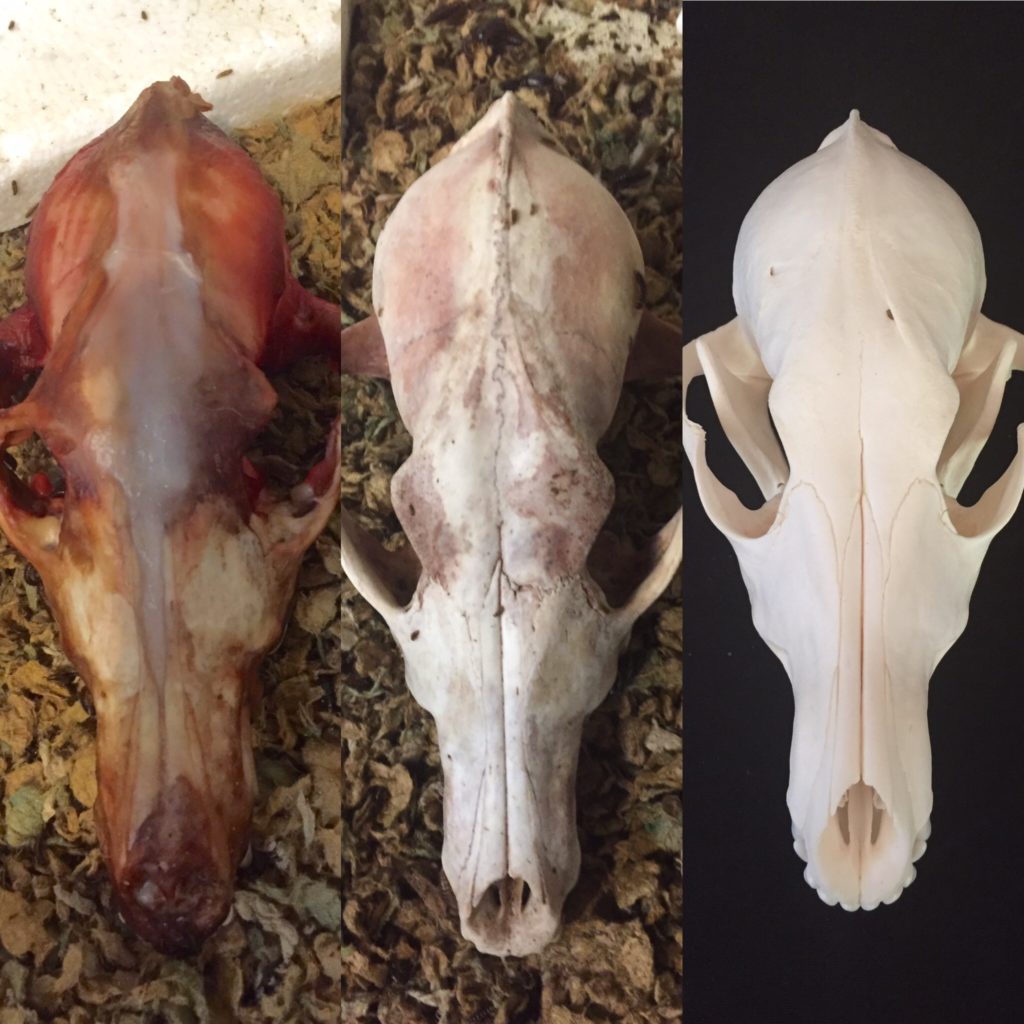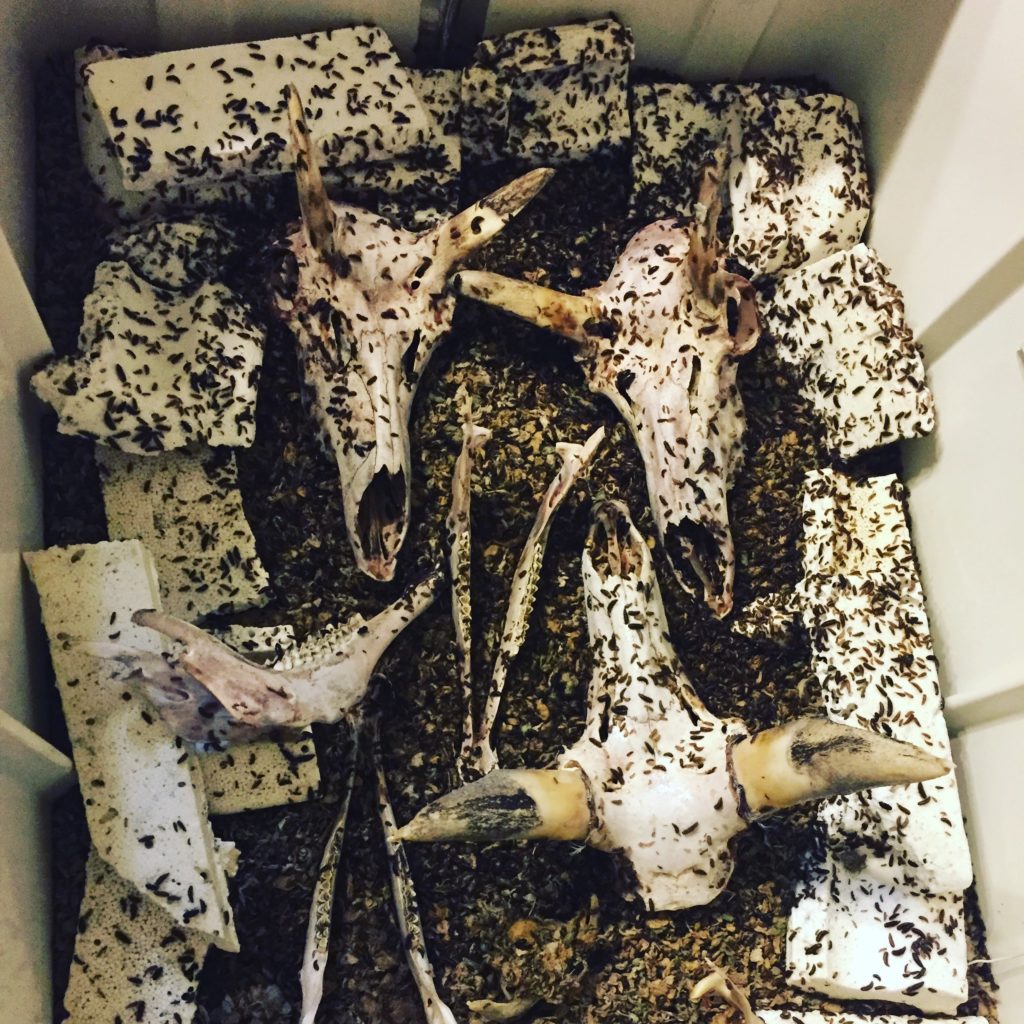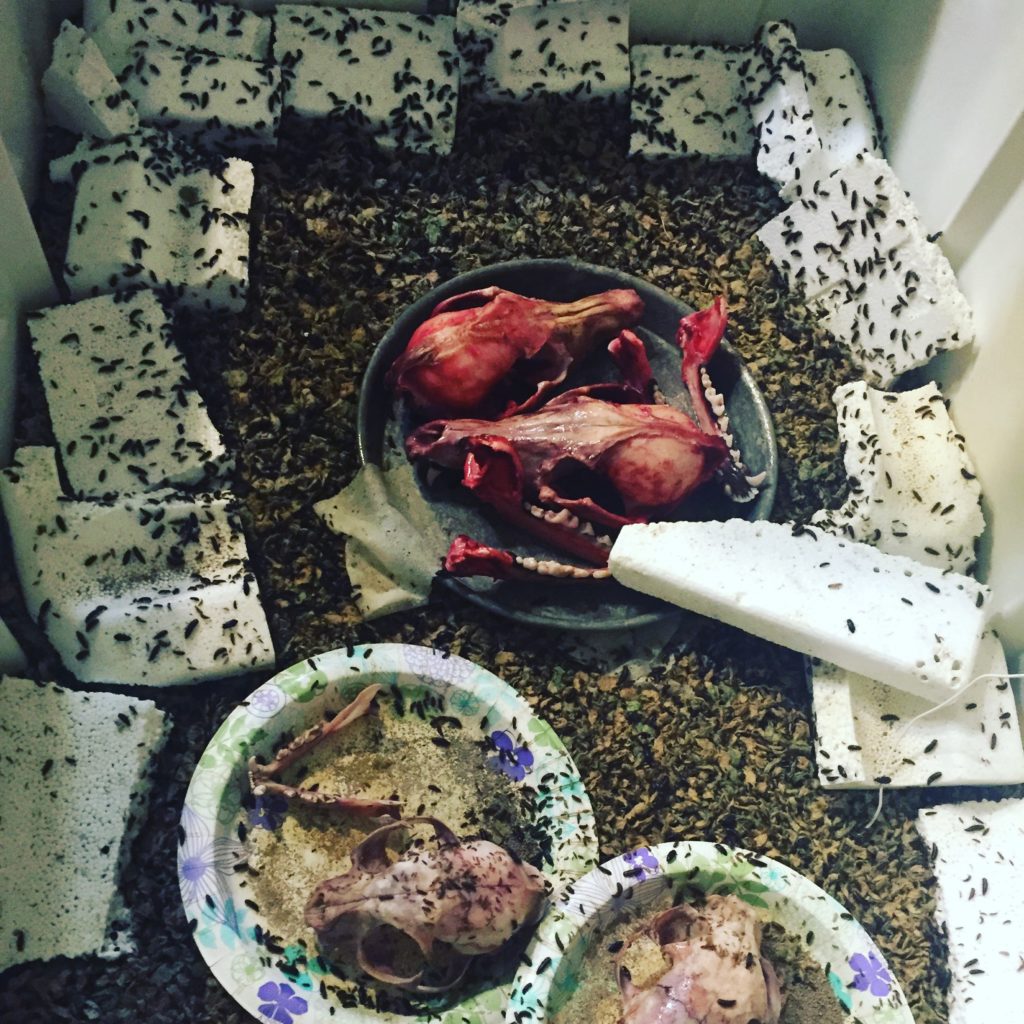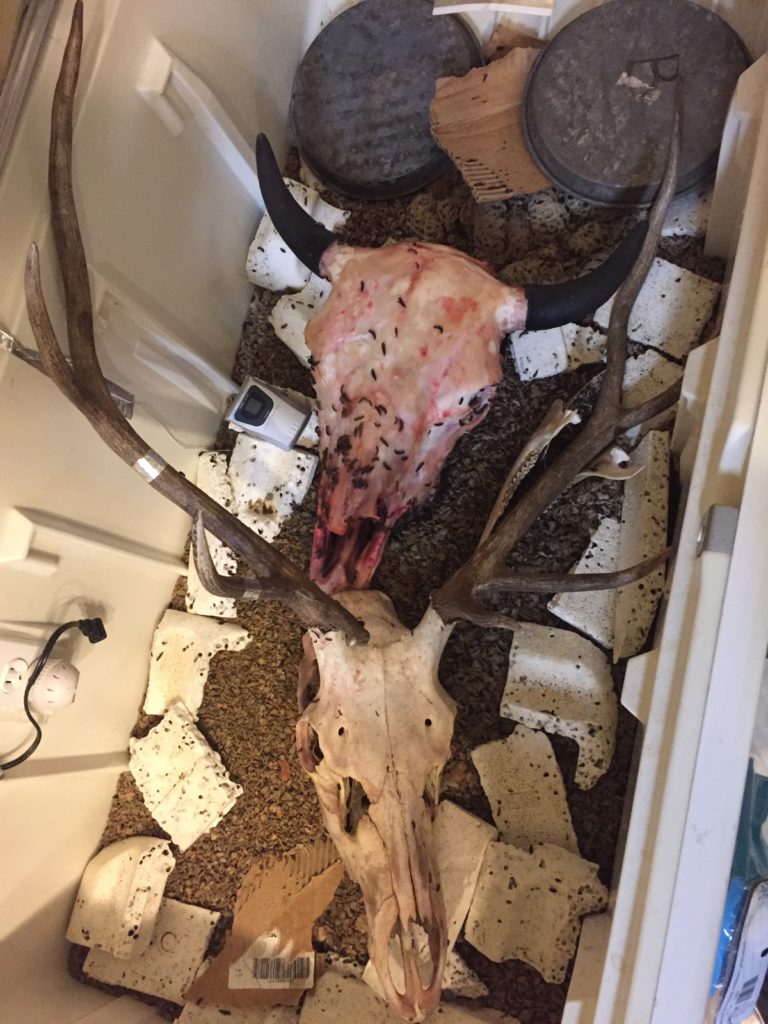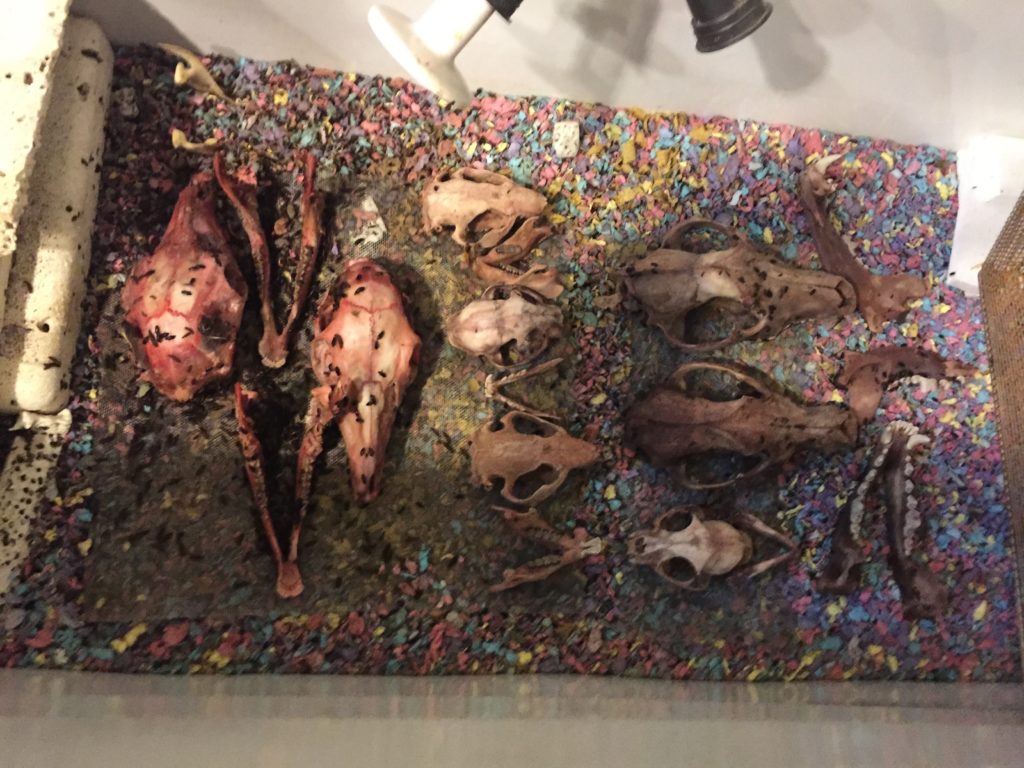Our beetles are our hardest working employees and they don't disappoint. They strip every scrap of flesh off our skulls in a matter of hours; we employ two large colonies that clean skulls and full skeletons 24/7/365. Our colonies not only do an immaculate job cleaning every animal skull we sell, they also chew out the middle man because we buy direct from our vast network of suppliers and clean all our skulls in house. That means we can pass those savings on to you, keeping it weird and affordable for all our collectors.

Beetle Q 'n' A
Q: What kind of beetles do you use?
A: We use Dermestid beetles also know as Flesh-eating beetles, Museum Beetles and Carpet Beetles. There are thousands of varieties of Dermestid beetles around the world, and good chances there are some in your backyard right now.
Q: Do they Bite?
A: Dermestid Beetles have no interest in living flesh so they are completely safe to handle. However, they are dangerous to keep for other reasons. If even a single adult female escapes she can lay thousands of eggs, once these eggs hatch they will go to work on the nearest organic food source, including taxidermy, pet food, carpet, clothing, leather and anything else they can find.
Q: Can I Clean a Skull with Beetles?
A: Absolutely you can, just know keeping beetles is a lot of work. They require a lot of space and round the clock climate control, they smell, and they also eat a LOT. If you have just a few skulls to clean the colony will start dying off as soon as they are out of food. If you have a skull you need cleaned your best option is to give us a call, we clean everything from nature finds to hunting trophies.
Q: How fast can they clean a skull?
A: That depends on the size of the skull and the colony, each of our colonies can clean a deer skull in about 24 hours, and something like a mouse skull in 30 minutes.
Q: Why Does the Learned Lemur use Beetles?
A: Dermestid beetles clean skulls better than any other method, they leave every single bone untouched even the tiniest of ear and nose bones. Boiling or maceration can damage these tiny bones and even the skulls themselves.
